Steven Wilson’s Craig Blundell: 10 drumming albums that changed my life
Prog drumming virtuoso picks the albums that shaped him
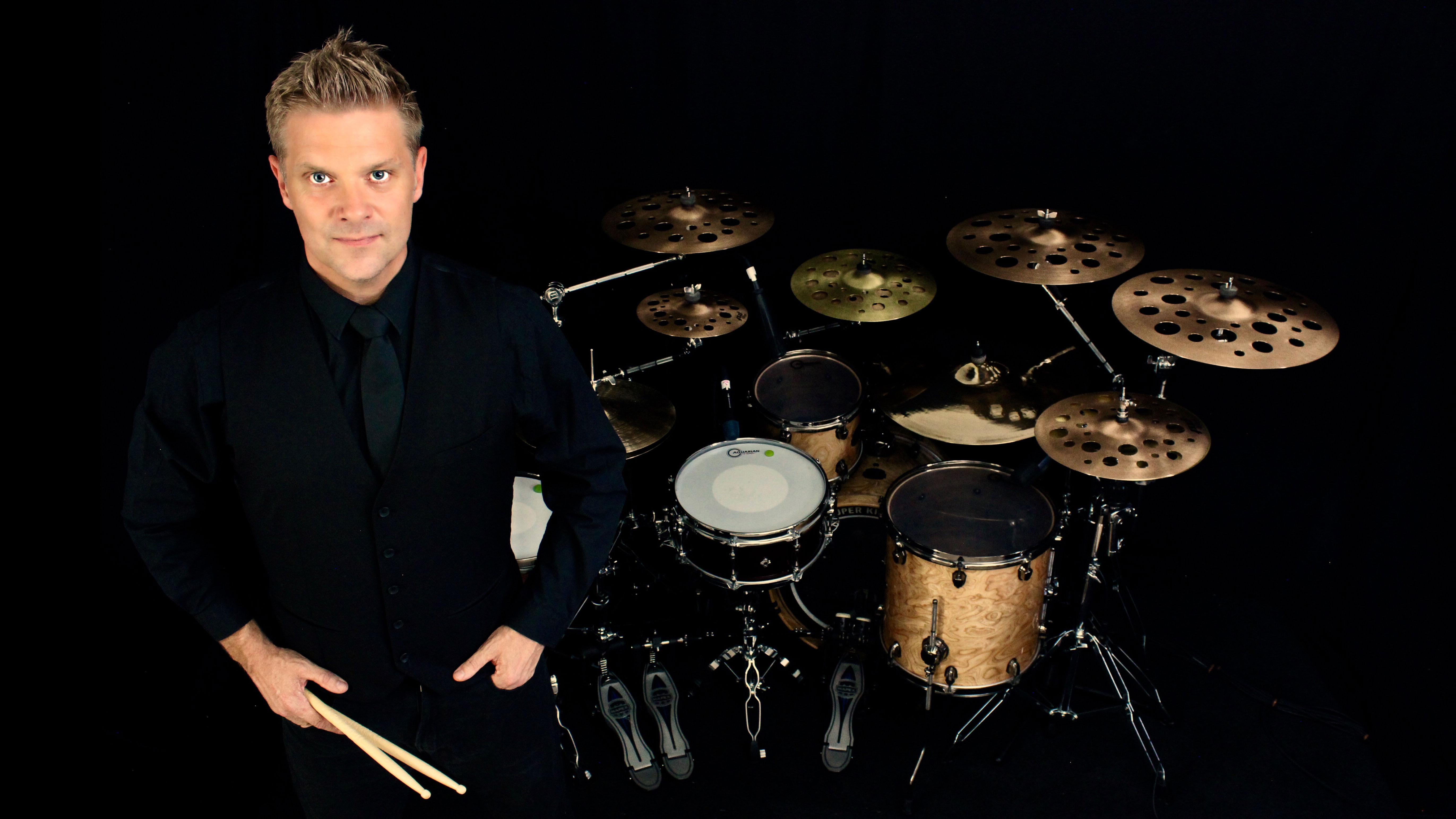
Craig Blundell is currently riding a two-year wave of success as the drummer for prog genius Steven Wilson. In 2015 he was ushered last minute into Wilson’s venerated band as the fill-in for an absent Marco Minnemann – a gig that would send most drummers running.
“It’s common knowledge that when I first got the gig I was extremely unprepared,” Blundell reveals of his trial by fire introduction to the gig. “We only had two days of rehearsals and then went to Chile and started the gig.
"I later found out that Steven records the show every night, listens to it, makes notes, then brings you in the next morning. I was about three weeks in and wasn’t sure I was going to make it.
I went back to the practice pad everyday and just played harder and harder...
“I went back to the practice pad everyday and just played harder and harder for longer periods. I’d been given this golden ticket and I wasn’t about to throw it away. About a month later I was starting to feel more comfortable, our meetings were getting less frequent and his whole persona towards me changed on stage.”
Blundell proved himself to such a degree that Wilson invited him to record some drums on his 2016 EP, 4 ½, as well as on new album To The Bone.
Chops and truckloads
For the album sessions, Blundell came prepared with chops and a truckload of gear, but Wilson made it clear that he didn’t want ‘drum Olympics’. “I came in with 8” through 18” toms, a million different Paiste cymbals, double kicks galore”, he remembers.
“[Steven said] you can do your stuff on tour, you can let loose and the fans love it, but I want pure stripped back playing. If you play a fill I want it justified. If I don’t like it we’re going to get rid of it.
“It was stripped back to a point where it was like ‘ok, just open the hats at the end of this verse, let’s let it breathe’. There’s no real crazy drum stuff on the album, but it was fairly organic, pretty pure and very soulful.”
To celebrate the release, we grilled Craig on the 10 albums that shaped his career as a progressive drummer and beyond.
Steven Wilson’s new album To The Bone is out on 18 August.
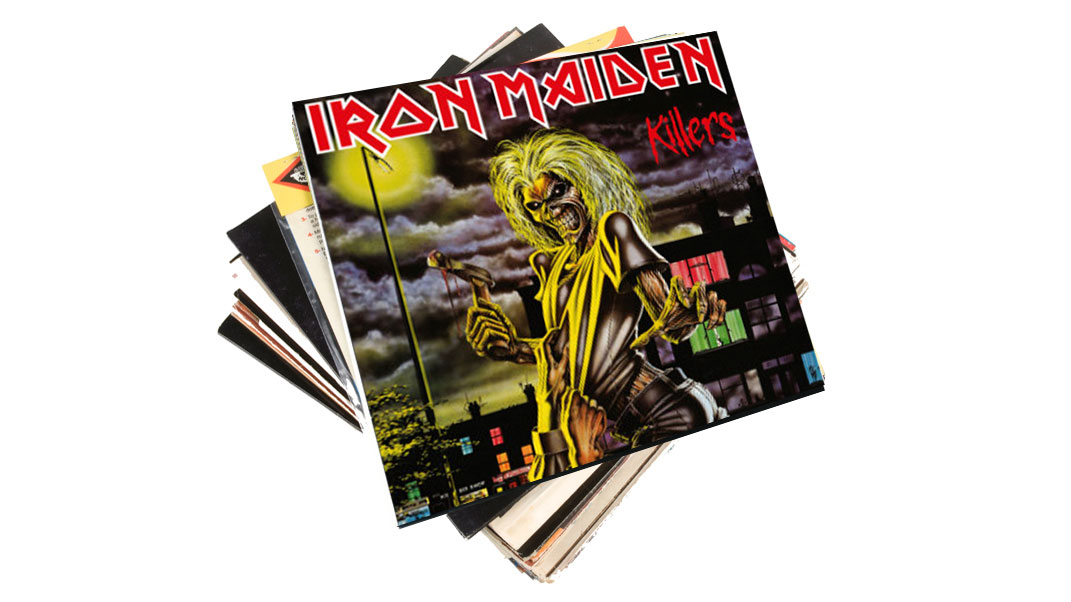
1. Iron Maiden - Killers (1981)
“I used to do my paper round listening to a walkman. I was mainly listening to pop music, but I knew early on that I was never going to be a pop musician because I’d just get bored.
"I went in to the paper shop one day and this guy lent me a cassette – it was Iron Maiden, Killers. I remember thinking ‘wow, this is something special, this is the sort of music I want to play’. It was organic and Clive Burr was absolutely smashing it.
I wore that cassette out.
“I loved the track Murders In The Rue Morgue; the groove on it, the tuning, the sound, everything. I wore that cassette out. I obviously went onto Number Of The Beast and all that, but Killers was the turning point for me.
“I’ll always have a soft spot for Maiden, I think. It was the music of my youth, it was my paper round music.”
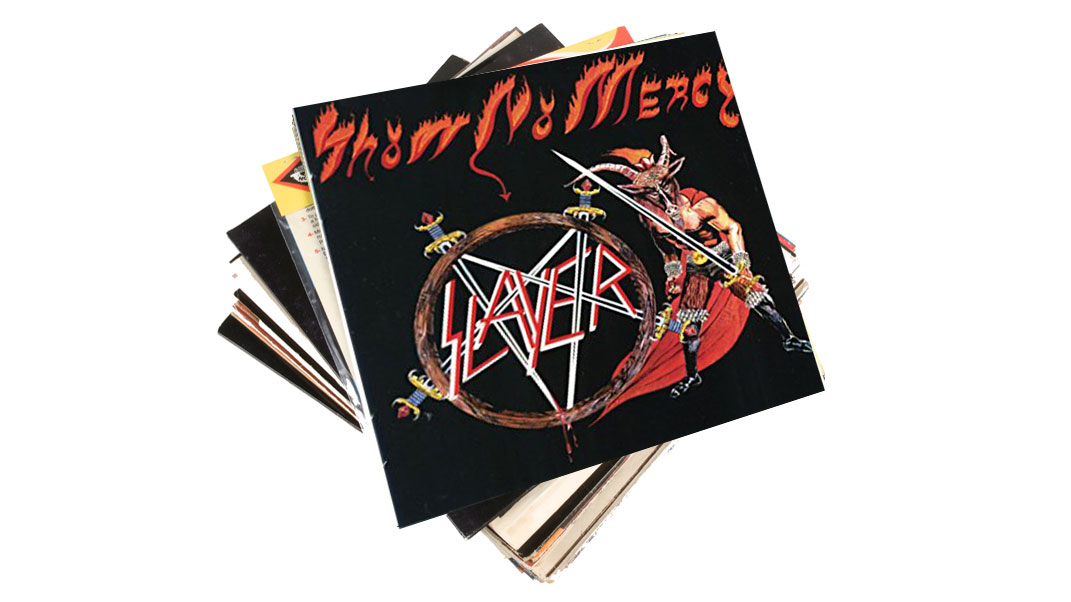
2. Slayer - Show No Mercy (1983)
“This band is still pretty much my favourite band ever. I was very much into Maiden at the time, but when you’re a rock guy you’re always looking for something heavier.
“I remember listening to it and not quite understanding it, but the drumming was an absolute freakshow. I’d never heard kicks like it. On a lot of the Maiden stuff at the time there were no frenetic kick parts then, all of a sudden, you’ve got these guys playing this ridiculous stuff that I’d never heard before.
My dad bought me a second kick drum and that was it.
"My dad bought me a second kick drum and that was it. Ironically, I’ve never played in a thrash metal band.
“I’m on a health kick at the moment. I’ve lost nearly three stone and the soundtrack has been Slayer! I love Dave Lombardo. They’re just an amazing band. This album changed everything for me.”
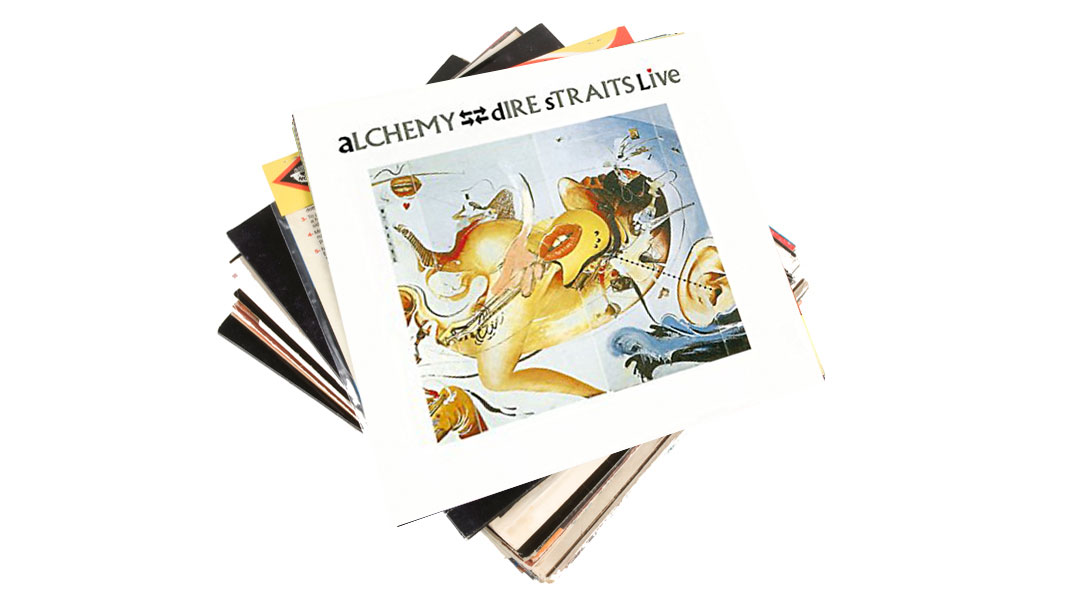
3. Dire Straits - Alchemy: Dire Straits Live (1984)
“I have my dad to blame for this.
"He was a massive Dire Straits fan, but I didn’t get it. It just sounded like pop/country & western to me. He came home with this double album but I thought it was boring, romantic stuff. Then this track came on and I thought ‘what the hell is going on there?’.
"The track was Sultans Of Swing and just before the second chorus Terry Williams plays this paradiddle between kick, ride and snare. I’d never heard that before.
I thought it was boring, romantic stuff.
"I kept listening and it hit home that this drummer was doing some real musicality stuff that I wanted to understand.
“Everyone goes nuts about Porcaro playing live, but for me, if you listen to Alchemy from start to finish, it’s one of the most musical drumming albums I’ve ever heard. It’s not a choppy album, but everything from his tuning to his choice of notes is absolutely breathtaking.”
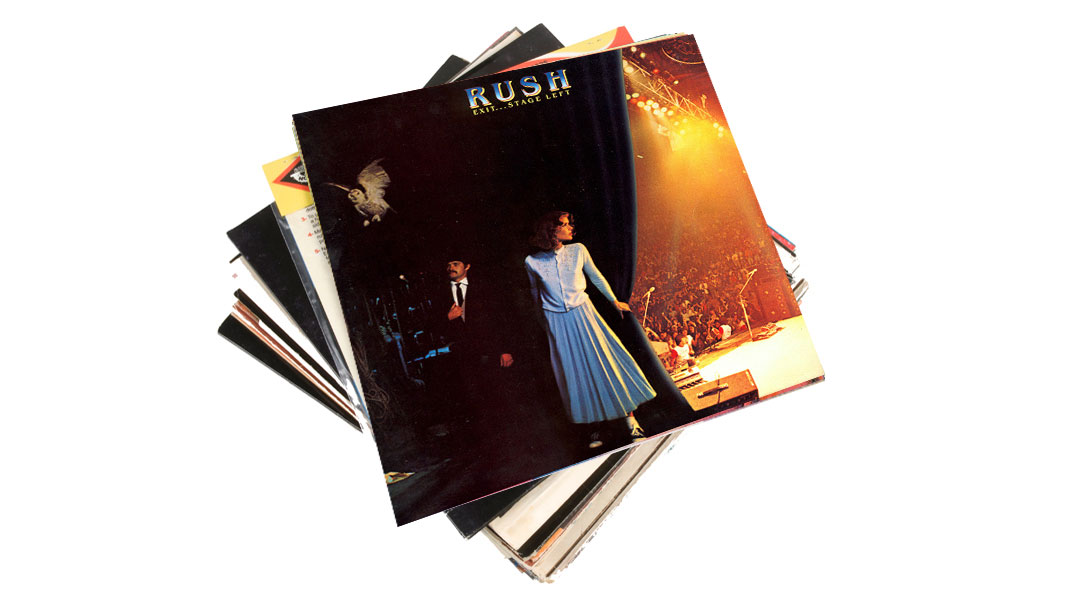
4. Rush - Exit... Stage Left (1981)
“I absolutely did not understand what was going on with YYZ and tracks like that. It was beyond my musicality.
"This was going to the next level for me with time signatures that didn’t feel right, but I liked that and wanted to know more. [Neil’s] part construction was very new to me with some strange phrasings and stickings.
“Looking back at it, Neil was an absolute pioneer of this genre. He was playing in a three-piece band who played everything live. They were prolific in their songwriting, they wrote a lot of groundbreaking albums and were a soundtrack for the drummer’s drummer.
Neil brought drumming forward 30 or 40 years.
"Outside Dave Lombardo, Neil was the first drummer I really fell in love with. He was the first poster on my wall.
“For me, Neil brought drumming forward 30 or 40 years. That’s the sign of a great drummer to me – you listen to their music years on and it still stands the test of time.”
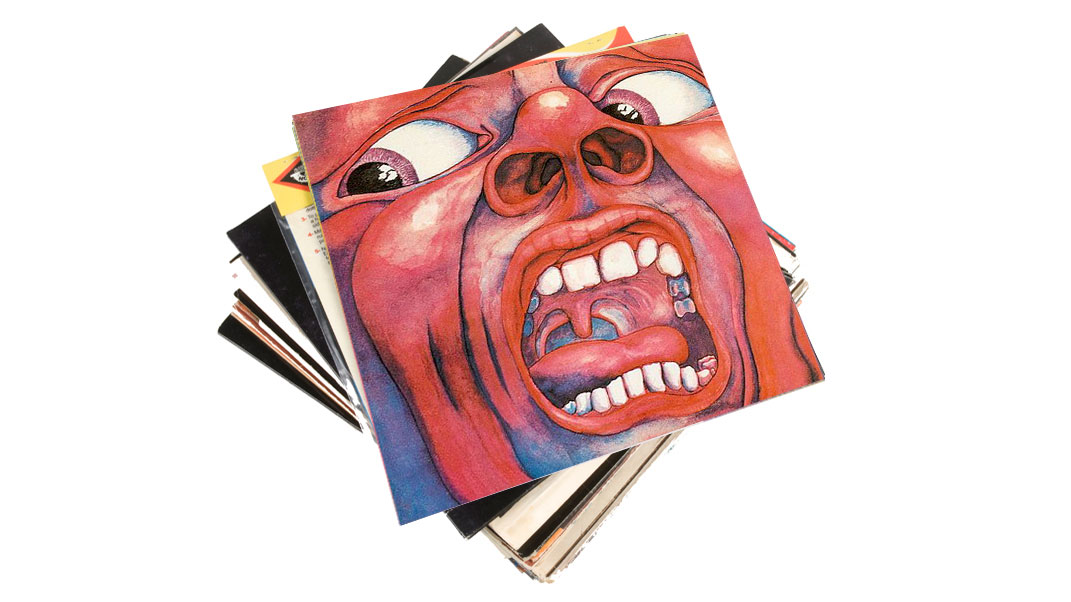
5. King Crimson - In The Court Of The Crimson King (1969)
“I don’t know many progressive artists that this band hasn’t affected over the years. I was really getting into progressive music and starting to understand these unison stabs that Rush used to do and those little snare runs that Neil did.
"Then I got to the middle of 21st Century Schizoid Man and just thought ‘what the hell is going on?’.
Crimson shaped so many drummers in my genre.
“Having [drummer] Michael Giles at the helm of that album was truly staggering. What he brought to this album was just a minefield of incredible musicality. Then Robert Fripp, with the textures and tones he brought to that band, was pure insanity.
“I do lots of prog festivals. The t-shirt I see most is Court Of The Crimson King. The album is nearly 50 years old. Still now it’s played on my iPod and I’m always hearing new things. It’s an absolute classic. Crimson shaped so many drummers in my genre.”
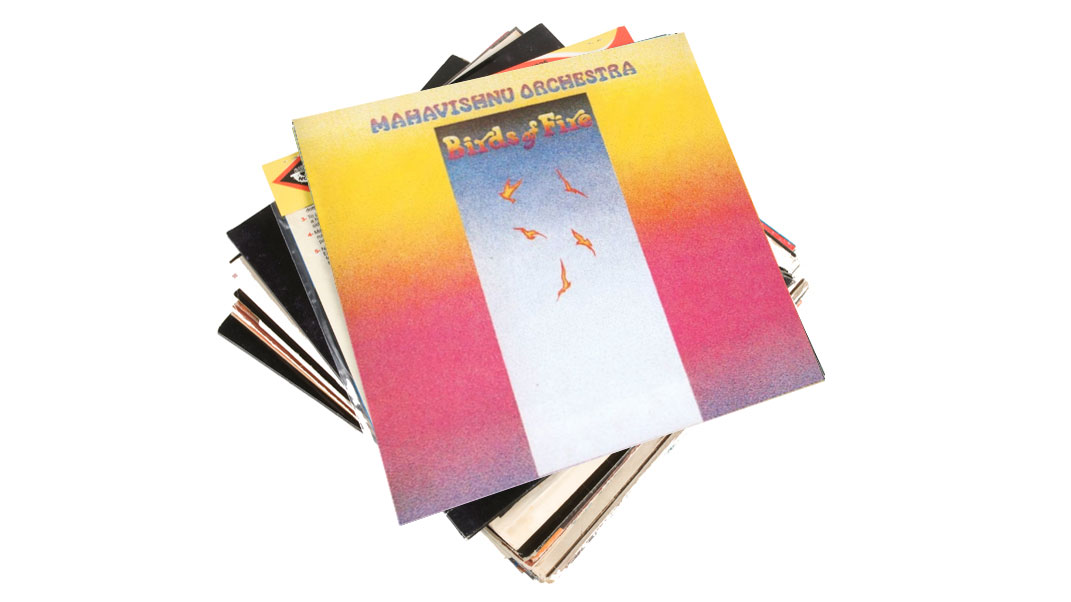
6. Mahavishnu Orchestra - Birds Of Fire (1973)
“This album was released the year I was born in 1973. I discovered it 14 years later. I’d never heard of Billy Cobham and the first time I’d heard of [keyboard player] Jan Hammer was Crockett’s Theme from Miami Vice!
"I put on the track Miles Beyond (Miles Davis) and I remember hearing this kick, hat and snare sound and thinking ‘where is this kit sound and this playing coming from?’.
He hits the one, then all of them just sit on this 19/16 and groove the shit out of it for five minutes.
“There’s a track called Celestial Terrestrial Commuters. It’s in 19/16 and halfway through Billy does the most staggering single stroke break I’ve ever heard in my life; Tony Williams-esque, but with aggression. He hits the one, then all of them just sit on this 19/16 and groove the shit out of it for five minutes.
"That was a jaw on the floor moment for me. How can you play that time signature, that fast, that musical, with that tuning and that groove?”
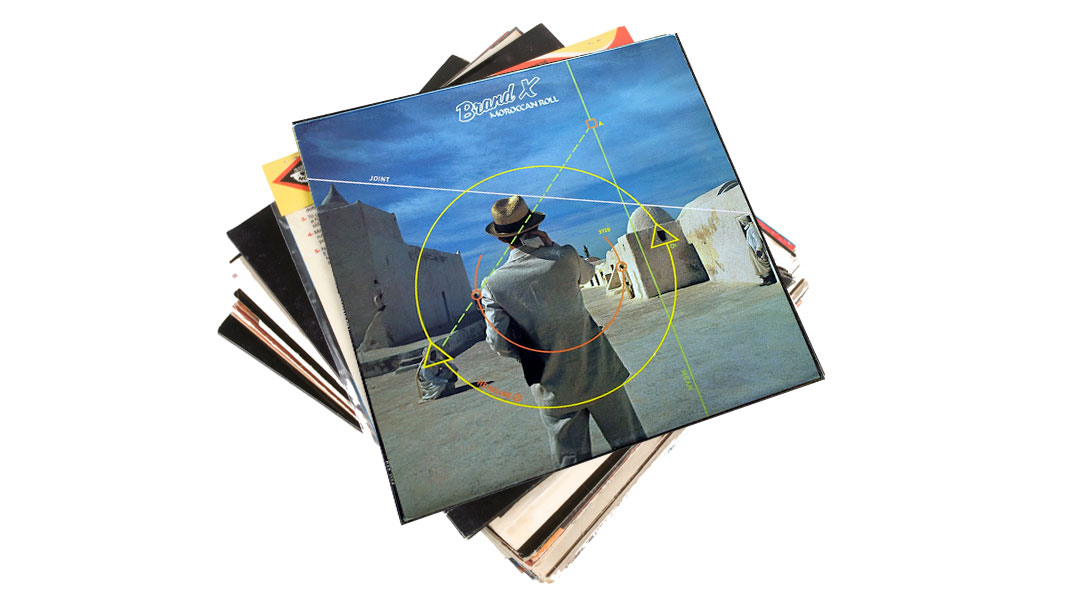
7. Brand X - Moroccan Roll (1977)
“I remember seeing the Genesis duet thing with Phil Collins and Chester Thompson and thinking, yeah [Phil]’s quite a good drummer.
"Some of my friends said I should check out his older stuff. I got introduced to this 1977 album and, for me, it’s the finest album I’ve heard Phil on.
“He was like the English version of Cobham who also sang. He played this roto tom kit which sounded like nothing I’d ever heard before, and played the most ridiculous stuff with Percy Jones on bass. They were the most formidable rhythm section.
[Phil Collins] was an absolutely staggeringly world class drummer that never got the plaudits he deserved.
“If you really delve into the person and the musician, [Phil Collins] was an absolutely staggeringly world class drummer that never got the plaudits he deserved. If I can get just one drummer reading this to check out Moroccan Roll it will change their perception of everything he ever did from there on.”
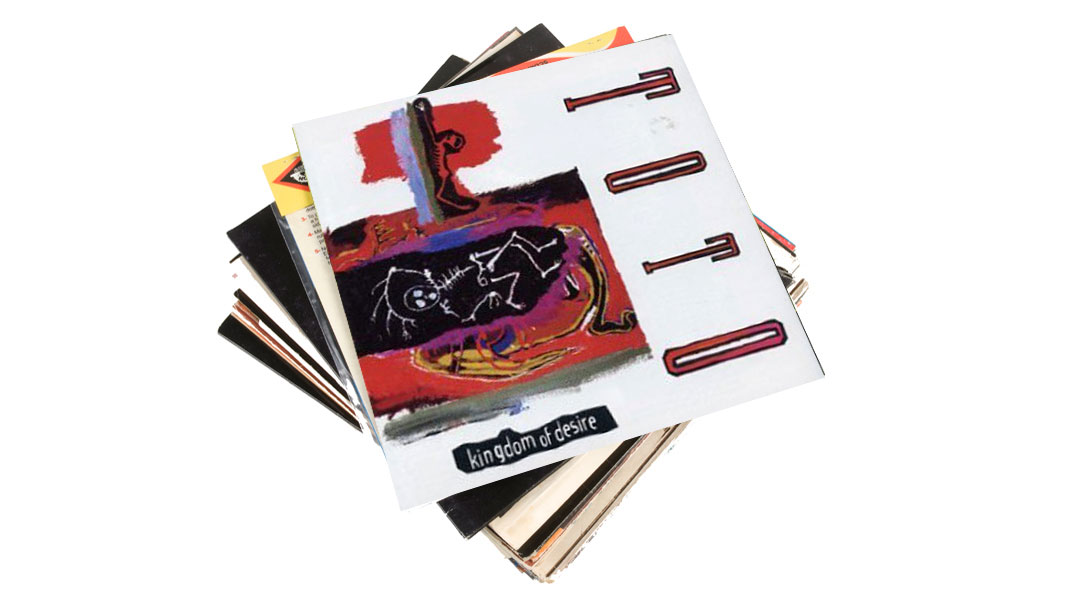
8. Toto - Kingdom Of Desire (1992)
“I remember hearing this groove stuff by this drummer and thinking it was tasty. I wasn’t really familiar with Jeff Porcaro at the time – then I discovered this album, Kingdom Of Desire. This track came on called Jake To The Bone and I remember thinking the sound of the drums was great.
If you hear me play anything in 7/8 now I’m absolutely ripping off Jeff Porcaro.
“It’s a straightforward track, pretty fast and Lukather’s slamming on it. Then it goes to this 7/8 section. If you hear me play anything in 7/8 now I’m absolutely ripping off Jeff Porcaro! It was the first time I’d ever heard 7/8 played that way.
“When you think of Toto everyone will think of Hold The Line or Africa. Go and listen to Jake To The Bone. There’s some really progressive stuff and some of the groove playing was extremely pioneering. For me [Jeff] forged that mainstream pop drummer that grooves like a mother with more progressive stuff, but he did it with ease.”
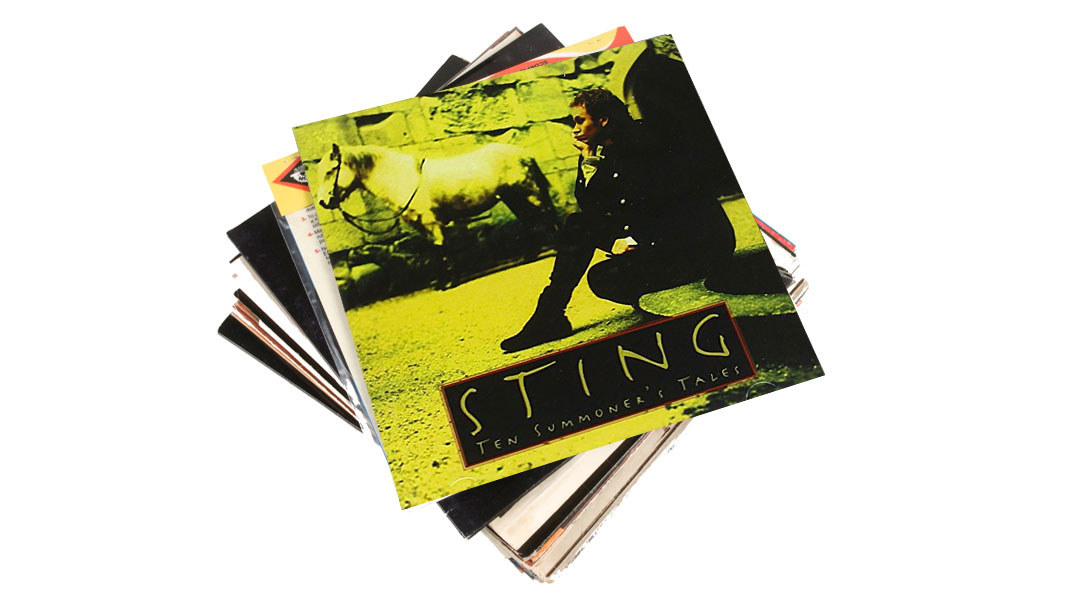
9. Sting - Ten Summoner’s Tales (1993)
“I’d been a Police fan for quite a few years but, dare I say it, I was never a massive Copeland fan – you either are or you aren’t. I was more a fan of Andy Summers and Sting’s songwriting.
“Sting launched this solo album. When you think of prog music you always think you can’t dance to it, but I remember listening to it and thinking ‘right, what is going on here?’. The drumming was pretty stunning and the track was Seven Days.
Vinnie [Colaiuta] bought a pop album that Sting wrote in weird time signatures to the mainstream.
“If you listen to the whole album now, Vinnie [Colaiuta] bought a pop album that Sting wrote in weird time signatures to the mainstream, and played it so seamlessly that you don’t know things are in five or seven. He plays it so majestically. For me it is the definitive studio drumming album ever. It’s an hour of magical drumming.”
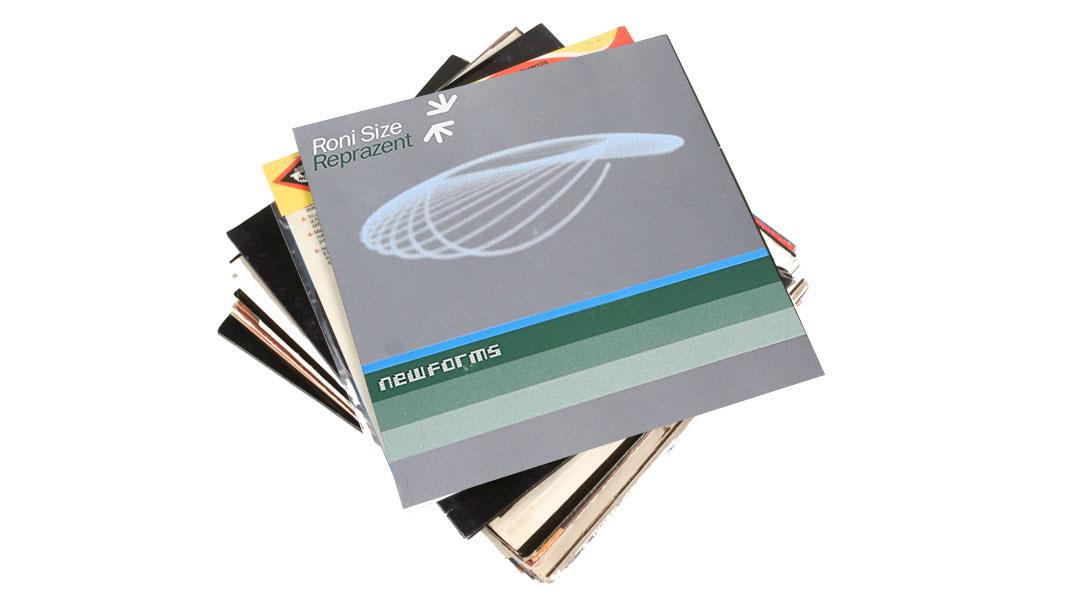
10. Roni Size/Reprazent - New Forms (1997)
“The BBC were doing a series of concerts in 1997 and they introduced this band who were doing this whole album live. It was Roni Size playing New Forms with Reprazent.
"This real tall, bald drummer started playing some real fast stuff. I’d never seen anything like it. Clive Deamer was just mesmerising on drums; he had this massive high energy and I could not take my eyes off him.
I’ve got a lot to thank Roni Size for.
“If I look at my early Roland demo videos from the first 10 years it’s all drum and bass and Roni Size-orientated. That kind of made way for my own Dr Oktopus project, too.
"Now I’ve gone back to my progressive roots and I love that, but if I think about it, some of the stuff I’ve recorded with Steven - like Vermillioncore, or the stuff I put out on YouTube - it still has that little tip to jungle and drum and bass. I’ve got a lot to thank Ronnie Size for.”
I'm MusicRadar's eCommerce Editor. In addition to testing the latest music gear, with a particular focus on electronic drums, it's my job to manage the 300+ buyer's guides on MusicRadar and help musicians find the right gear for them at the best prices. I dabble with guitar, but my main instrument is the drums, which I have been playing for 24 years. I've been a part of the music gear industry for 20 years, including 7 years as Editor of the UK's best-selling drum magazine Rhythm, and 5 years as a freelance music writer, during which time I worked with the world's biggest instrument brands including Roland, Boss, Laney and Natal.
